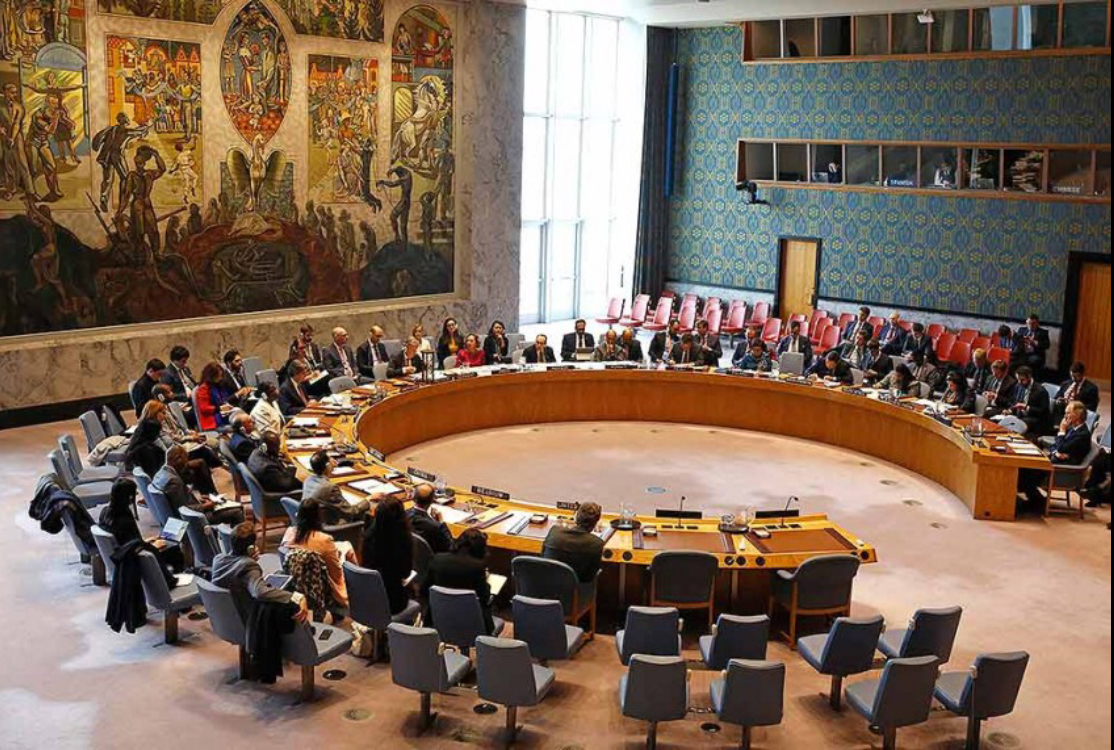Prime Minister Narendra Modi on Monday marked India’s stint as a rotating president of the UN Security Council for the month of August, as one of the 10 current non-permanent members, by presiding over an open debate on enhancing maritime security.
The debate is a landmark of sorts. The Ministry of External Affairs noted Mr. Modi is the first Indian Prime Minister to preside over a UNSC Open Debate. The focus was on ways to effectively counter maritime crime and insecurity, and strengthen coordination in the maritime domain. This is “the first time that maritime security will be discussed in a holistic manner as an exclusive agenda item in such a high level open debate,” the MEA said.
At Monday’s debate, Prime Minister Modi outlined a five-principle framework, starting with removing barriers to maritime trade. In this context he highlighted SAGAR (‘Security and Growth for all in the Region’ ) – a 2015 Indian framework for regional maritime security. Pointedly, Mr. Modi also said maritime disputes “ should be resolved peacefully and in accordance with international law,” which may be seen as a subtle dig at China’s moves to unilaterally enforce its claims in the disputed South China Sea.
Kallol Bhattacherjee looked ahead to India’s term as rotating president for the month of August by looking at the past: the current stint is the eighth time that India has held the Presidency of the top U.N. body. The last time India held the position was a decade ago during 2011-12. Similar stints were served during 1950-51, 1967-68, 1972-73, 1977-78, 1984-85 and 1991-92. He writes why the first stint in 1950-51 left lasting lessons about how difficult international affairs can be at the level of the chair of the President.
What will be India’s agenda at the UNSC? It will emphasise three priorities for the month: maritime security, counterterrorism, and peacekeeping, India’s Permanent Representative to the United Nations T.S. Tirumurti said. In addition to Monday’s meeting on maritime security, India will also organise a Minister-level meeting titled, ‘Threats to international peace and security caused by terrorist acts’ at the end of August. India is seeking to enhance coordination between the U.N. and the Financial Action Task Force (FATF), the money-laundering and terror-financing watchdog, as well as address the linkages between terror and transnational crime. Another ministerial open debate on peacekeeping, ‘United Nations Peacekeeping Operations: Technology and Peacekeeping’ will be held on August 18.
Laying out India’s policy perspective, External Affairs Minister S. Jaishankar said India will always be a supporter of international law. “As we take over UNSC Presidency for August, look forward to working productively with other members. India will always be a voice of moderation, an advocate of dialogue and a proponent of international law,” said Mr. Jaishankar.
One of the issues that is top of the agenda for the UNSC at the moment is Afghanistan. The body held a meeting on the situation in Afghanistan on August 6. At the discussion, Afghanistan’s Permanent Representative to the UN Ghulam Isaczai launched a scathing attack on Pakistan, saying it was providing safe haven and logistical support to the Taliban. The Pakistan Foreign Office hit out at the body for keeping it out of the meeting.
As India takes over the presidency, The Hindu spoke to the U.K’s Permanent Representative to the United Nations, Barbara Woodward, who shared her thoughts about how both countries plan to work together, as well as the U.K.’s views on Afghanistan and the possibilities of a Taliban return.
You can watch our interview with Barbara Woodward here.
India, of course, is currently one of the non-permanent members. The long pending question of expanding the UNSC’s permanent members beyond the present five appears to have little prospect of finding a consensus on what has become an intensely divisive and political issue. In a reminder of that fact, last week, the U.S., which has in the past backed India’s bid for a permanent seat – China is the only one of the P5 not to have done so – offered a non-committal response on the issue. While former President Barack Obama had famously announced backing for India’s bid, the Biden administration has so far appeared rather non-committal, reports Sriram Lakshman.(Courtesy- The Hindu)





